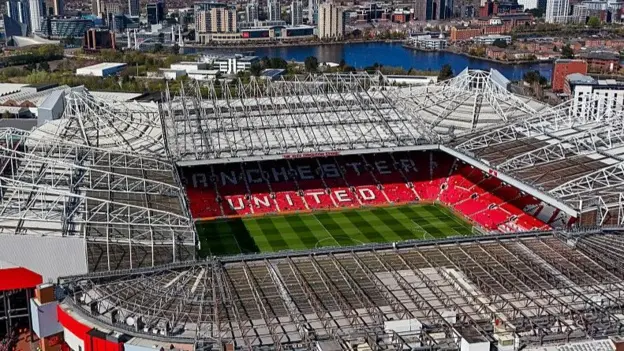
Manchester United fans have voiced outrage over the club’s latest ticket price increases, describing the move as a “kick in the teeth” amid growing concerns about affordability and connection with the club. The rise, confirmed ahead of the 2025/26 season, marks the third increase in four years and has sparked a fierce backlash among long-time supporters.
Many fans see the hike as yet another signal that the club’s management is prioritising profit over passion. With general admission season tickets set to increase by approximately 5%, supporters argue that the move is out of step with the club’s recent performances and the cost-of-living pressures facing working-class fans.
The Manchester United Supporters’ Trust (MUST) issued a strongly worded statement, calling the decision “disrespectful” and “completely tone-deaf.” “To raise prices while the team underperforms and the fan experience continues to decline shows a complete disconnect from the people who fill Old Trafford week in, week out,” the statement read.
The announcement comes at a time when many fans already feel alienated by changes in club culture, corporate expansion, and the ongoing uncertainty over ownership. For some, the rise in ticket prices is the final straw. “It’s a kick in the teeth,” said 43-year-old lifelong fan Mark Ellis. “They keep asking more of us and giving us less.”
Despite the club’s claims that the increase is modest and necessary to maintain facilities, fans argue that they’re being unfairly burdened. “We’re being asked to pay more while Old Trafford still leaks when it rains,” said Sarah Connolly, a season ticket holder from Salford. “Where is the money really going?”
The timing has also drawn criticism. The price rise was announced shortly after the club ended another disappointing season, failing to qualify for the Champions League and facing uncertainty around squad rebuilding. For many, this further fuelled perceptions of poor leadership and financial priorities misaligned with supporter sentiment.
Some fans are now threatening to boycott matches or protest outside Old Trafford during the opening games of the season. A grassroots movement calling for greater transparency in pricing decisions has begun to gather momentum on social media under the hashtag #FairPricesMUFC.
Adding to the sense of betrayal is the fact that Premier League broadcast revenues continue to soar, raising questions over why loyal match-going fans are expected to cover cost increases. “The club makes millions from TV deals, sponsors, and global merchandise,” said Connolly. “Why should fans at the turnstiles be the ones who pay more every year?”
Club officials have defended the move, saying ticket revenues are still vital to maintaining competitiveness. In a press release, United stated: “We remain committed to investing in the team and facilities, and matchday income plays an important part in this process.” However, such explanations have done little to pacify supporters.
The broader debate also touches on the role of football clubs in their communities. Historically, Manchester United has been seen as a working-class club, deeply embedded in local identity. Many fans now feel that identity is being lost. “This isn’t the club I grew up loving,” said 29-year-old fan Alex Khan. “It’s becoming a business first, and a football club second.”
With the new season approaching, tensions show no sign of easing. Fan groups are demanding a freeze on future ticket increases and greater representation in pricing decisions. MUST has called for urgent talks with the club’s board to address what it describes as “a growing gulf between those who own the club and those who live and breathe it.”
As one of the world’s most famous football clubs, Manchester United’s choices often echo beyond Old Trafford. If the unrest continues, it may inspire broader calls for fan involvement in governance—something many supporters now see as essential to preserving the soul of the game.

Leave a Reply